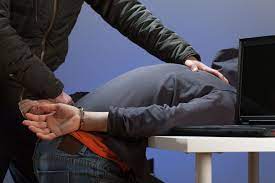Child pornography charges can be devastating for you and your family. The prosecutor must still prove these charges beyond a reasonable doubt. Here are some common defenses that people use to contest allegations.
Illegal Search or Seizure
Child pornography requires evidence that you possessed or distributed the materials. Usually, law enforcement will seize a laptop or your cell phone because they suspect that it contains illegal material. Importantly, the police cannot just take your electronics. They need to honor your Fourth Amendment protections the same as they would with any other search. There is no general exception based on the alleged crime.
If the police want to seize your computer, they need a search warrant that is based on probable cause. If there is no search warrant, they need to rely on an exception to the Fourth Amendment. Without it, you may be able to have the illegally seized evidence thrown out of court.
Entrapment
In their zeal to catch and charge people, law enforcement could take things too far. They are not allowed to entrap suspects. If you are minding your own business, they cannot coerce or induce you to commit a crime, as doing so would violate your constitutional rights. If you are a normally law-abiding person, police cannot try to get you to commit a crime that you would never have committed otherwise. They are forbidden from engaging in:
● Pressure
● Coercion
● Trickery
● Fraud
There is a fine line between a legal sting operation and entrapment, and law enforcement often crosses it. If you can prove entrapment, you could successfully defend against the charges.
Accidental Possession
You cannot be convicted of possessing or distributing child pornography if you do not know that you are doing either. Instead, you must have the intent to commit the illegal act. This means that they knowingly possessed something that they knew to be child pornography.
Some people may be working on shared computers, or they may have lent their devices to someone else. They may have inadvertently ended up with illegal content on their computer that they did not download themselves. If you did not intentionally access or download the content, you may not be convicted.
Moreover, someone else could have placed the material on your device. You could have even had malware that put the content there. This would keep you from having the required intent.
The Material Was Not Child Pornography
Child pornography has a very specific legal definition. Usually, it must be pictures or videos of naked children or sexually explicit situations involving children. This means that the people depicted must be under 18 years old. If the subject of the content turns out to be over the age of 18, it is not child pornography, no matter what the defendant intended to possess. This also means that certain material may not be pornographic, depending on what it depicts.
Sex Crimes Attorneys
If you have been charged with or are being investigated for child pornography, call the experienced attorneys at Cohen Law Offices today at (715) 514-5051 or contact us to schedule your free initial consultation.
When Results Matter Most, Call Cohen Law First.
We’re not just any law firm — we’re
Northwest Wisconsin’s trusted criminal defense powerhouse. At Cohen Law Office, criminal defense isn’t one thing we do — it’s
the only thing we do.
Focused on YOU. Fighting for YOU. Always.
Need Help After Hours? We've Got Your Back.
If you're reaching out outside of our regular business hours,
don’t worry — just
click here, and one of our dedicated team members will get in touch with you as soon as possible.


